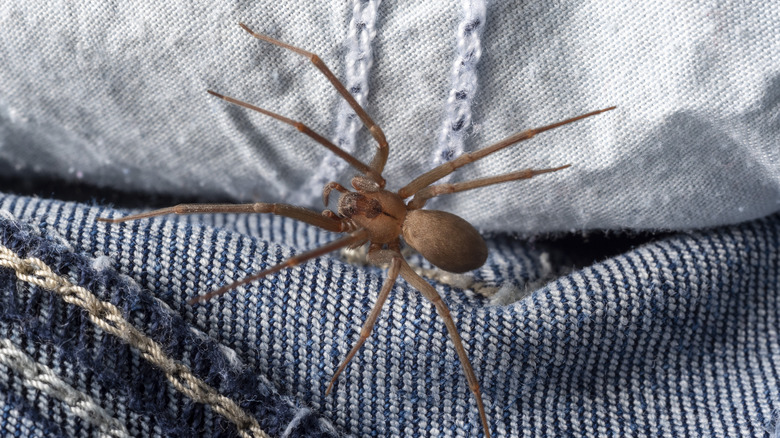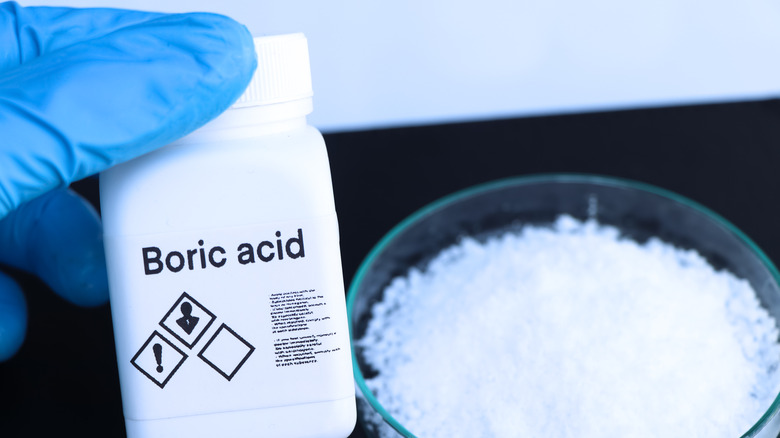Can Boric Acid Banish Brown Recluse Spiders From Your Home? Here's What We Know
In the quiet corners of our homes, brown recluse spiders silently weave their webs, bringing with them a host of concerns. These spiders, which can be easily identified by the distinct violin-shaped markings on their bodies, are not your ordinary house guests. Their venomous bites can lead to necrotic wounds, causing significant discomfort and, in severe cases, requiring medical attention. Having brown recluse spiders around is not merely an inconvenience; it's a potential health hazard that demands swift action. The most effective solution? Eliminate them. One popular DIY solution for getting rid of brown recluse spiders is boric acid, but does it really work? Our short answer is yes. Boric acid's efficacy in pest control is already well established.
In fact, it has been registered for use as a pesticide with the United States Environmental Protection Agency (EPA) for decades. Boric acid is known for its versatility and efficacy, particularly in dealing with a variety of bugs, including spiders like the brown recluse. Here, we'll explore the characteristics of these spiders, the risks they pose, and how boric acid can be a game-changer in reclaiming your home from their clutches.
The power of boric acid in spider control
Brown recluse spiders, scientifically known as Loxosceles reclusa, are characterized by their medium size, light brown color and the distinctive violin-shaped mark on their cephalothorax. These arachnids prefer dark, undisturbed areas like closets, basements, and attics, making them challenging to detect until an infestation is well underway. With six eyes arranged in pairs, they exhibit a unique appearance that sets them apart from other spider species.
Meanwhile, boric acid is a naturally occurring compound derived from boron, and it is an effective weapon that you can use against brown recluse spiders. When applied strategically, it disrupts the spiders' protective exoskeleton and dehydrates them, leading to their demise. To use boric acid, apply a thin layer in areas frequented by brown recluse spiders, such as along baseboards, behind furniture, and in undisturbed spaces and corners. The powder clings to their bodies as they crawl through, ensuring that it takes effect.
While boric acid is a powerful tool, caution is paramount. Keep it away from areas accessible to children and pets, as ingestion can be harmful. Additionally, take care to avoid contact with the eyes and skin, so using protective gear when applying the substance is highly advised.
Practical tips for spider prevention
Preventing spider infestations involves a combination of proactive measures and the strategic use of pest control agents like boric acid. Begin by sealing cracks and gaps in your home's structure to eliminate potential entry points for spiders. Focus on areas where plumbing, wiring, and vents penetrate the walls, as these are common access points.
Regular cleaning and vacuuming are crucial for removing spider webs and egg sacs, disrupting the spiders' reproductive cycle. Keeping your home clean will also discourage flies and other insects that spiders prey upon from invading your home. Decluttering dark corners and storage areas will help reduce possible hiding spots, making the environment less conducive to infestations. You can also apply boric acid in strategic sections of your home as a preventive measure, serving as a protective barrier that'll deter spiders from entering your property.
However, moderation is key when using boric acid, and it's essential to follow product guidelines diligently. By combining these preventive strategies with the targeted use of boric acid, you can effectively discourage brown recluse spiders and other unwanted pests from taking up residence in your home. However, if you already have an existing infestation, it may be worth considering hiring pest control professionals to address your brown recluse problem once and for all.


